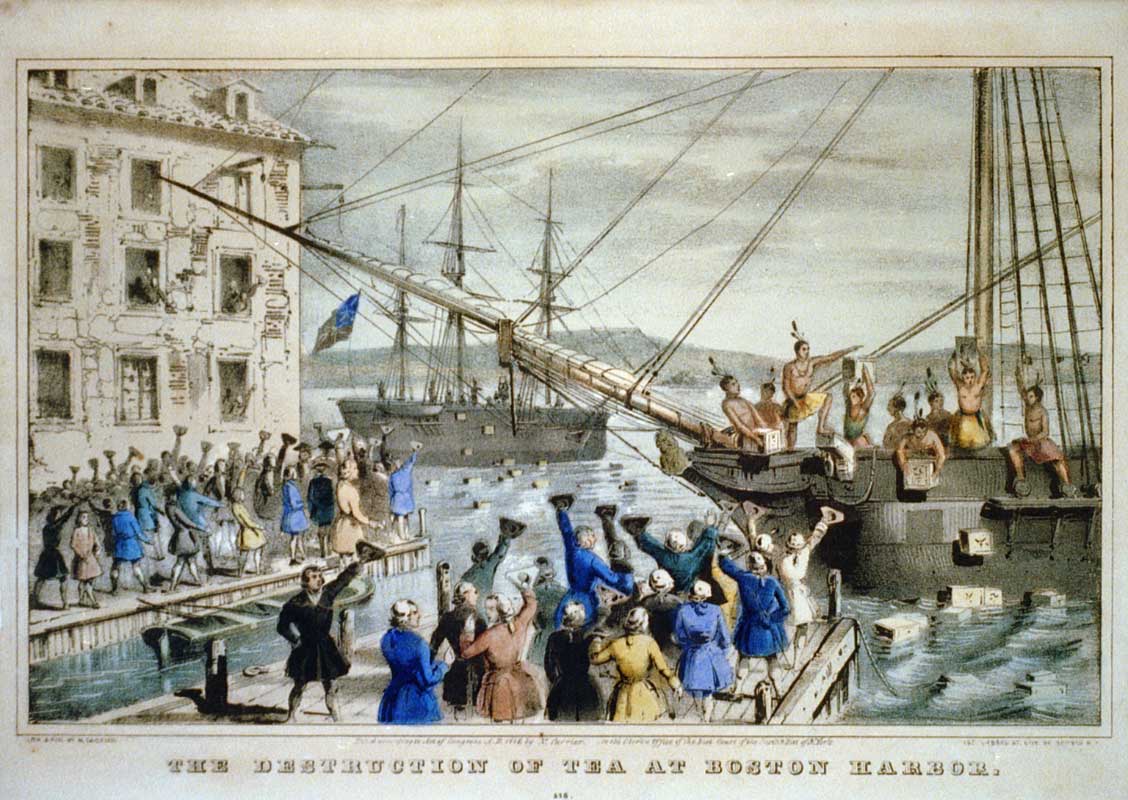1773 The Boston Tea Party
Relations between some of the British colonies in North America and the home country were getting a tad antsy by 1773. Tax-averse Americans were reluctant to pay for their own defense in the absence of representation in the UK Parliament. They wished, against British wishes, to penetrate the lands held by native tribes and they objected to the freedom of religion and social customs which had been permitted in the colony of Quebec. Violence and thuggery was the response of some of the more high-spirited American lads. Colonial officials were attacked, ships and homes burnt, and in December the focus was on obstructing the importation of tea from Britain.
The mercantilist system of economics employed by most European powers in the 18th century regarded colonies as territories to be exploited for the benefit of the metropolis. For example, colonies were forbidden to trade directly with other nations and all shipping had to be done by domestic carriers. In the case of America, colonists found it cheaper to resort to some goods, such as tea, smuggled in from non-British sources. However, when the British Tea Act worked to lower the price of legally imported tea, the colonists were outraged. Those merchants who had made a tidy living smuggling now found themselves undercut — greed and nativism combined to prompt action.
At a protest meeting chaired by John Adams, a breakaway group of vandals, calling themselves the Sons of Liberty, disguised themselves as Mohawks, boarded tea-laden vessels in Boston Harbour and dumped the valuable cargo into the water. Adams professed himself in awe of this deed:
This is the most magnificent Movement of all. There is a Dignity, a Majesty, a Sublimity, in this last Effort of the Patriots, that I greatly admire. The People should never rise, without doing something to be remembered—something notable And striking. This Destruction of the Tea is so bold, so daring, so firm, intrepid and inflexible, and it must have so important Consequences, and so lasting, that I cant but consider it as an Epocha in History.
The British responded with a series of coercive measures that sped the outbreak of the American War of Independence and coffee rose to replace tea as the freedom-lover’s beverage of choice.
